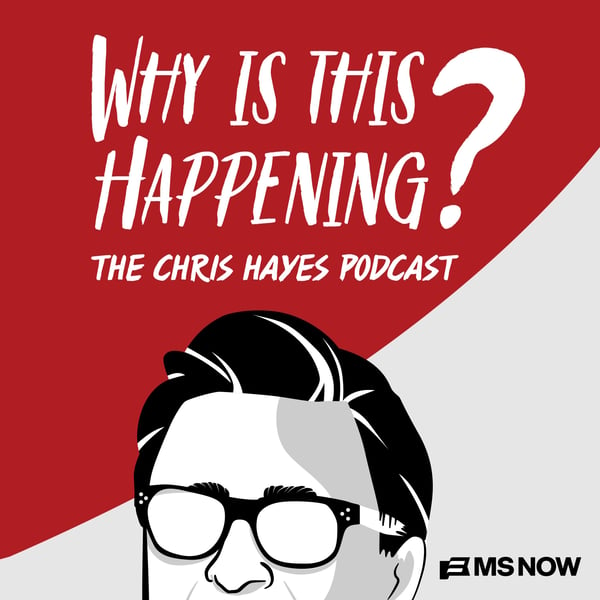Conservatism in the Trump 2.0 Years with McKay Coppins
Why Is This Happening? The Chris Hayes Podcast
MS NOW, Chris Hayes
4.6 • 8.9K Ratings
🗓️ 26 November 2024
⏱️ 55 minutes
🧾️ Download transcript
Summary
Transcript
Click on a timestamp to play from that location
| 0:00.0 | I think that people are probably understandably, but like over interpreting like his landslide victory, quote unquote, as like he's going to have this mandate to just do whatever he wants. |
| 0:20.4 | And like, to quote you, |
| 0:22.9 | you've said this a bunch of times, politics still exist. And politics within the Republican |
| 0:27.2 | coalition still exists. And it's pretty nasty. And I think that this honeymoon period that |
| 0:32.0 | he's in now is not going to last, you know, the first hundred days of his presidency. |
| 0:40.8 | Hello and welcome to Wise. It's Happening with me, your host, Chris Hayes. |
| 0:48.6 | You know, the thing about any winning political coalition in America in a system that's |
| 0:53.0 | essentially a two-party system, |
| 0:54.7 | right? So each of the parties themselves are kind of coalitions of different interests. |
| 1:00.1 | You know, in Europe, in a parliamentary democracy, they might actually be like a bunch of |
| 1:03.2 | smaller parties that cobble together to make a governing majority. In the U.S., you've got two |
| 1:07.0 | major parties. Each party has to build a coalition of different interests, different kinds of folks. |
| 1:11.8 | When you win, and if you win, it's almost definitionally the case that your coalition is going to have all sorts of internal axes of disagreement and conflict, right? |
| 1:20.7 | Different ideological tendencies that are at war with each other, different material interests that might be at war with each other. |
| 1:26.9 | You know, you might be in the Democratic Party, you know, is both the party of labor and also |
| 1:31.6 | has a lot of big business support. So it's got to figure out how to deal with that. |
| 1:35.5 | There are different ideological factions in the Democratic Party around foreign policy in |
| 1:40.3 | particular. You see how the issue of Israel and the Gaza War has split the coalition |
| 1:44.4 | in all kinds of really, really intense ways. I mean, there are people's, there are people |
| 1:48.5 | who are on far ends of the ideological spectrum over Gaza and Israel that are both within |
| 1:56.5 | ostensibly the Democratic coalition, right? So that's the nature of two-party systems. |
| 2:01.3 | That is also true on the MAGA right, but it is exacerbated by a few things. |
... |
Please login to see the full transcript.
Disclaimer: The podcast and artwork embedded on this page are from MS NOW, Chris Hayes, and are the property of its owner and not affiliated with or endorsed by Tapesearch.
Generated transcripts are the property of MS NOW, Chris Hayes and are distributed freely under the Fair Use doctrine. Transcripts generated by Tapesearch are not guaranteed to be accurate.
Copyright © Tapesearch 2025.

